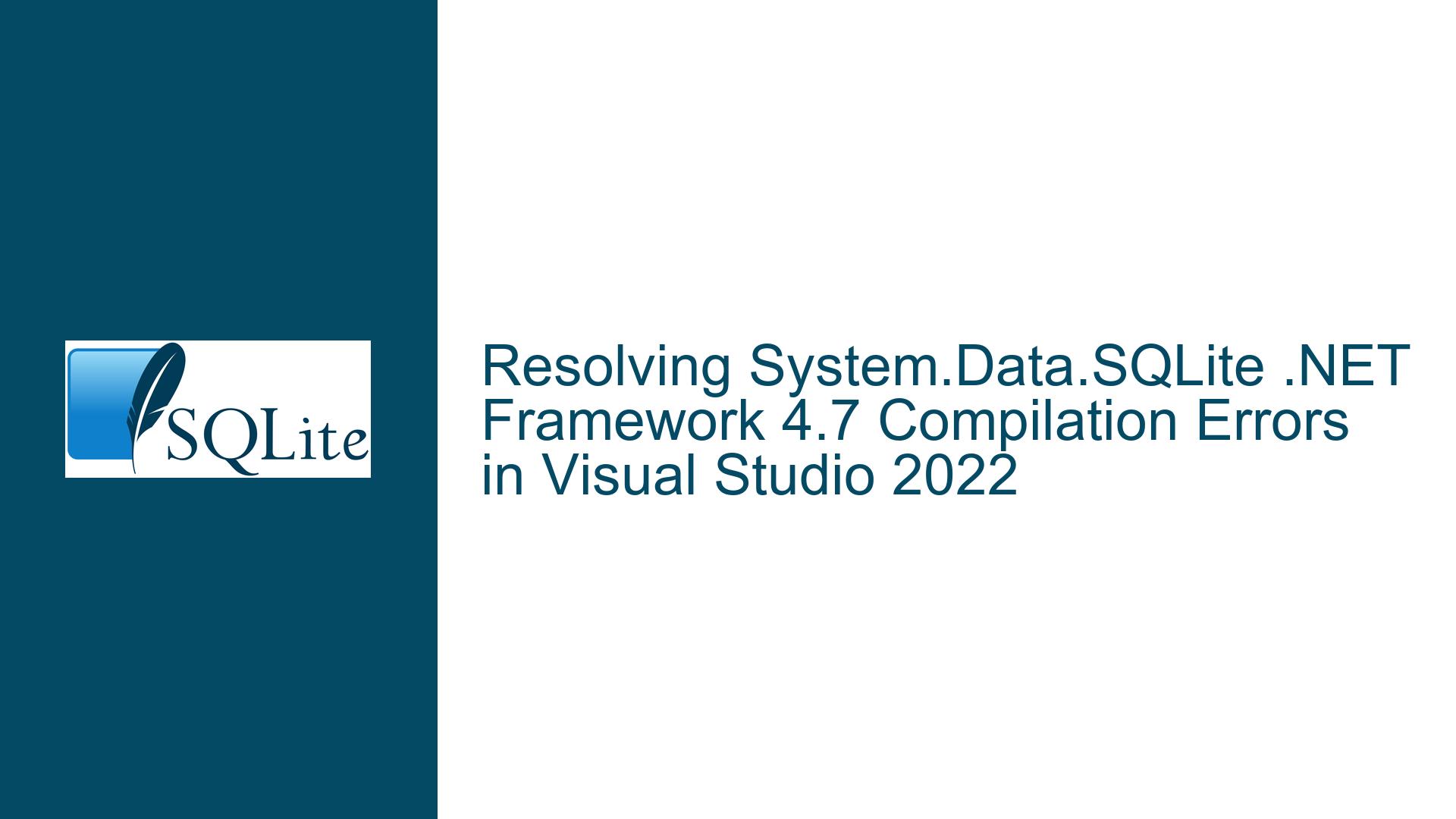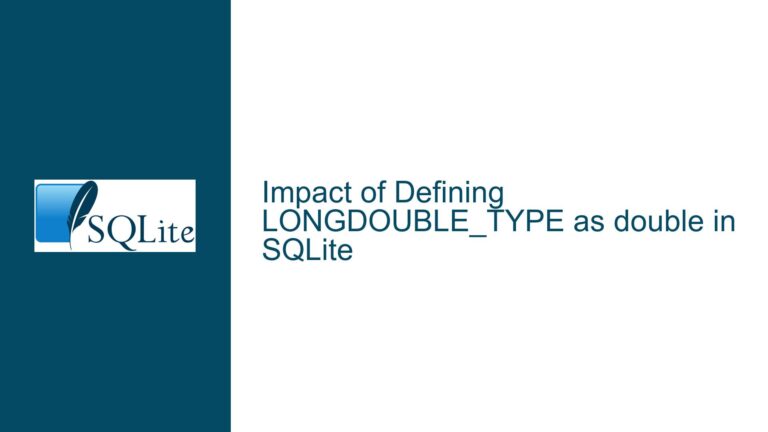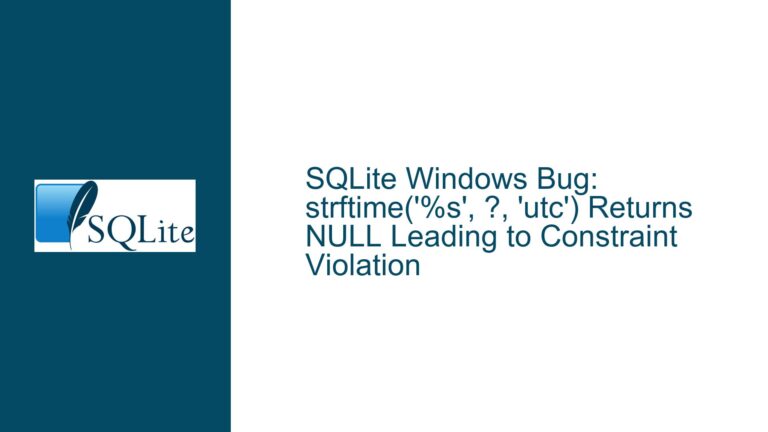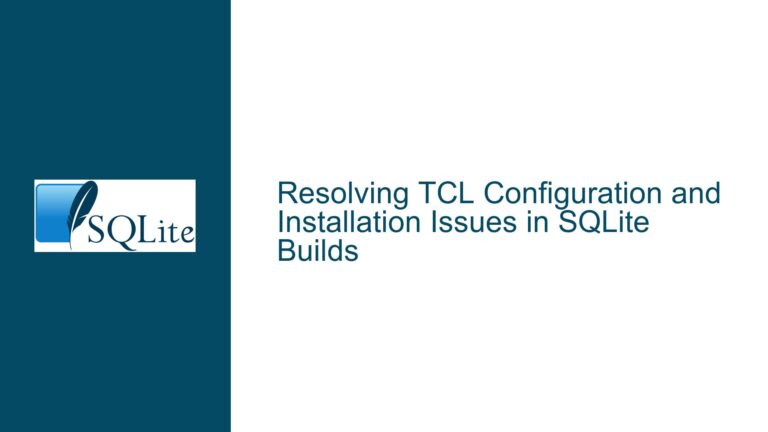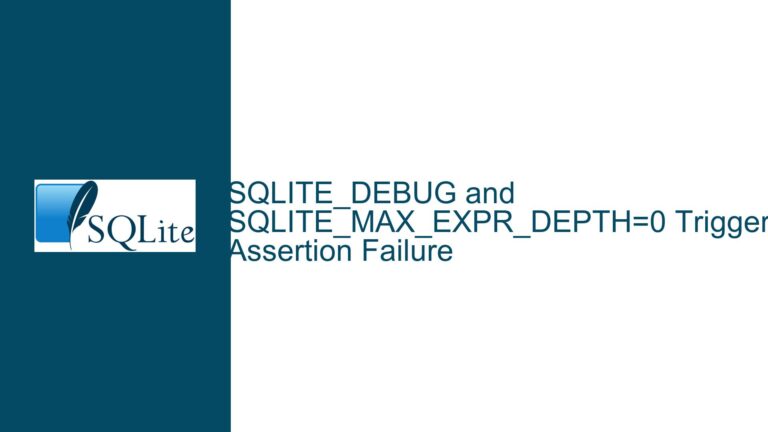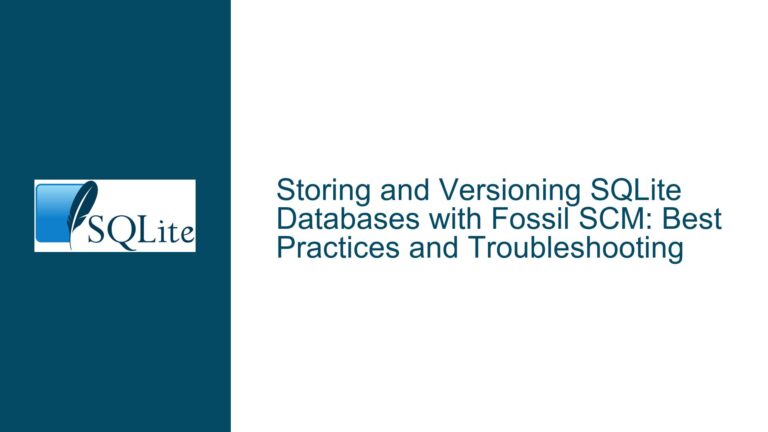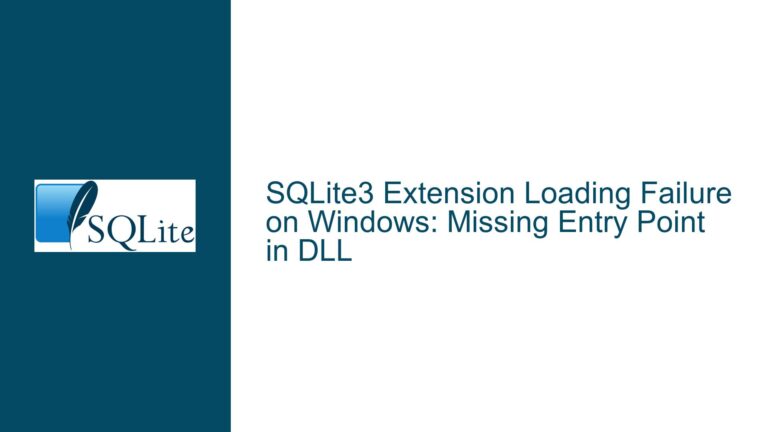Resolving System.Data.SQLite .NET Framework 4.7 Compilation Errors in Visual Studio 2022
Issue Overview: Compilation Failures Targeting .NET Framework 4.7 in Visual Studio 2022
The core issue revolves around attempting to compile the System.Data.SQLite library in Visual Studio 2022 while targeting .NET Framework 4.7, specifically for gaming console development. The error Your project does not reference ".NETFramework,Version=v4.7" framework occurs when opening a Visual Studio 2017 solution in VS2022. The problem persists even after confirming that .NET Framework 4.7 is installed, and changing the target framework version results in cascading errors. This suggests deeper incompatibilities between the legacy solution structure, project configurations, and modern tooling workflows.
Key observations from the discussion include:
- The SQLite.NET.2017.sln solution file is used as the entry point for compilation.
- Build failures occur in interdependent projects like System.Data.SQLite.NetStandard20 and SQLite.Interop.2017.vcxproj.
- NuGet package restoration and asset generation (e.g., obj/project.assets.json) conflict with multi-targeting requirements.
- Residual build artifacts (e.g., obj folders) cause cross-project contamination when using shared directories.
The complexity arises from the hybrid nature of System.Data.SQLite, which combines C# .NET projects with C++/CLI interop libraries. Visual Studio 2022’s updated MSBuild engine and NuGet tooling interpret legacy project configurations differently than VS2017, leading to mismatches in framework targeting, dependency resolution, and build order prioritization.
Possible Causes: Framework Targeting Conflicts and Legacy Project Configurations
1. Outdated .NET Framework Targeting Packs in Visual Studio 2022
While .NET Framework 4.7 may be installed, Visual Studio 2022 might lack the corresponding targeting packs required for compilation. Targeting packs provide MSBuild with the metadata needed to resolve framework-specific references. If the Developer Pack for .NET Framework 4.7 is missing, projects referencing this framework will fail to compile, even if the runtime is present.
2. Incompatible Project File (.csproj) Format
Legacy .csproj files designed for VS2017 often use non-SDK-style project formats, which lack explicit <TargetFramework> or <TargetFrameworks> declarations. When opened in VS2022, these projects may default to newer frameworks (e.g., .NET 6/7/8) or misinterpret multi-targeting directives. This leads to errors during NuGet package restoration, where package dependencies are resolved against incorrect framework versions.
3. NuGet Package Compatibility and Asset Generation
The System.Data.SQLite.NetStandard20 project introduces cross-platform targeting via .NET Standard 2.0, which conflicts with Windows-specific .NET Framework 4.7 dependencies. NuGet generates project.assets.json files based on the first resolved framework, causing subsequent projects (e.g., SQLite.Interop.2017) to inherit incompatible settings. This is exacerbated by shared intermediate output directories (obj folders), where conflicting build artifacts from different frameworks overwrite each other.
4. C++/CLI Interop Project Misconfiguration
The SQLite.Interop.2017.vcxproj project (a C++/CLI component) requires explicit linkage to the correct .NET Framework version. If its Common Language Runtime Support setting (/clr) is misconfigured or references outdated libraries, the build process will fail to resolve mixed-mode assembly dependencies.
5. Solution-Wide Build Order Dependencies
The monolithic structure of the SQLite.NET.2017.sln solution may enforce a rigid build order that assumes VS2017-era tooling. In VS2022, parallel project builds and incremental compilation can disrupt this order, leading to race conditions where interop DLLs are not generated before dependent C# projects attempt to reference them.
Troubleshooting Steps, Solutions & Fixes: Modernizing Build Pipelines and Isolated Configurations
1. Validate .NET Framework 4.7 Targeting Pack Installation
- Open Visual Studio Installer, select Modify for VS2022.
- Under Individual Components, ensure .NET Framework 4.7 targeting pack is checked.
- If unavailable, download the Developer Pack from Microsoft’s Archive and install it manually.
- Verify installation by creating a new Console App (.NET Framework) project targeting 4.7. Successful compilation confirms the pack is functional.
2. Migrate Legacy .csproj Files to SDK-Style Format
- For System.Data.SQLite C# projects, replace the legacy project header:
<Project ToolsVersion="15.0" xmlns="http://schemas.microsoft.com/developer/msbuild/2003">With the SDK-style equivalent:
<Project Sdk="Microsoft.NET.Sdk"> <PropertyGroup> <TargetFramework>net47</TargetFramework> </PropertyGroup> </Project> - Retain existing
<Reference>,<Compile>, and<Content>items but remove redundant GUIDs and<Import>statements for Microsoft.CSharp.targets. - For C++/CLI projects, edit SQLite.Interop.2017.vcxproj to enforce CLR support:
<PropertyGroup> <CLRSupport>true</CLRSupport> <TargetFrameworkVersion>v4.7</TargetFrameworkVersion> </PropertyGroup>
3. Isolate Intermediate Output Directories
- Modify each project’s Intermediate Output Path to avoid shared
objfolders:<PropertyGroup> <BaseIntermediateOutputPath>$(MSBuildProjectDirectory)\obj\$(Configuration)\</BaseIntermediateOutputPath> </PropertyGroup> - Clean existing build artifacts using:
msbuild /t:Clean /p:Configuration=Release
4. Enforce Framework-Specific NuGet Restores
- Create a Directory.Build.props file at the solution root to override global properties:
<Project> <PropertyGroup> <RestoreProjectStyle>PackageReference</RestoreProjectStyle> <AutoGenerateBindingRedirects>true</AutoGenerateBindingRedirects> <GenerateBindingRedirectsOutputType>true</GenerateBindingRedirectsOutputType> </PropertyGroup> </Project> - Run NuGet restore with explicit framework targeting:
nuget restore SQLite.NET.2017.sln -Property:TargetFramework=net47
5. Decouple Interop and NetStandard20 Projects
- Split the solution into two parts: Native Interop (C++/CLI) and Managed Wrapper (C#).
- Build the SQLite.Interop.2017.vcxproj independently using Visual C++ Build Tools:
msbuild SQLite.Interop.2017.vcxproj /p:Configuration=Release /p:Platform=x64 - Reference the prebuilt interop DLLs in the System.Data.SQLite.NetStandard20 project using absolute paths:
<ItemGroup> <Content Include="..\Interop\$(Platform)\SQLite.Interop.dll" CopyToOutputDirectory="PreserveNewest" /> </ItemGroup>
6. Utilize Batch Builds and Conditional Compilation
- In VS2022, navigate to Build > Batch Build and deselect non-essential projects (e.g., test suites, deprecated configurations).
- Add conditional compilation symbols to exclude platform-specific code:
<PropertyGroup Condition="'$(Configuration)' == 'Release'"> <DefineConstants>RELEASE;NET47</DefineConstants> </PropertyGroup>
7. Leverage Standalone Build Scripts
- Execute the build_net_standard_20.bat script from the command line to bypass IDE limitations:
cd Setup build_net_standard_20.bat - For interop DLLs, invoke nmake or msbuild directly using Developer Command Prompt for VS2022:
nmake /f Makefile.vc2022 SQLITE_OS=WINRT
8. Reconcile Framework Disparities in Mixed Solutions
- For projects requiring .NET Standard 2.0 and .NET Framework 4.7 coexistence:
- Use multi-targeting in SDK-style projects:
<TargetFrameworks>net47;netstandard2.0</TargetFrameworks> - Conditionally reference dependencies:
<ItemGroup Condition="'$(TargetFramework)' == 'net47'"> <Reference Include="System.Transactions" /> </ItemGroup>
- Use multi-targeting in SDK-style projects:
9. Update to Latest System.Data.SQLite Sources
- Clone the GitHub mirror or download the official amalgamation.
- Replace outdated SQLite3 source files (e.g., sqlite3.c, sqlite3.h) with versions from SQLite 3.46.1.
- Apply community patches for VS2022 compatibility, such as ARM64 linker fixes and C++/CLI exception handling.
10. Automate Solution Restructuring with PowerShell
- Script the creation of isolated project folders and symbolic links:
Get-ChildItem -Filter *.csproj | ForEach-Object { $dir = New-Item -Name $_.BaseName -ItemType Directory New-Item -Path $dir.FullName -Name $_.Name -ItemType HardLink -Value $_.FullName } - Generate a consolidated .sln file referencing restructured projects:
dotnet new sln -n SQLite.NET.2022 dotnet sln add **\*.csproj
By methodically addressing framework targeting, project isolation, and build automation, developers can reconcile System.Data.SQLite’s legacy architecture with Visual Studio 2022’s toolchain. The solutions outlined prioritize backward compatibility while adopting modern practices to ensure sustainable maintenance.
